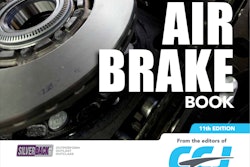There has been a lot of talk lately about unbundling leases. Proponents of unbundling say they can save you money on certain items that have been bundled together in your lease.
For example, a non-asset-based maintenance provider may tell a fleet that it will cost them less to have their maintenance separated from a full-service lease that includes the cost of the equipment, maintenance, insurance, fuel, licensing and other items that are typically included in a full-service lease.
A commercial equipment lender may approach a fleet about financing the cost of the equipment only. They will tell the fleet it will cost them less money to do this, but I contend that those companies tend to downplay the maintenance and operating costs that go with a truck. These commercial equipment lenders will tell a fleet that halfway through the finance lease — usually about three years — they will replace the existing equipment with new units, claiming that the fleet will then avoid the higher maintenance costs typically associated with older vehicles.
At a very rudimentary level, that might seem to make sense. But the fallacy is they often remain silent about the increased cost of the new equipment. Plus, they can’t predict the borrowing environment three years down the road and what interest rates will be.
A full-service lease takes the transportation burden away from a company and gives it to someone that has the know-how, tools and technology to operate the fleet more efficiently. The full-service lessor also has the human resources experience needed to hire and retain technicians and to handle the administrative work associated with safety, tax reporting, etc.
Especially for private fleets whose core competencies are manufacturing and not trucking, full-service leasing is a solution that allows them to deliver value to their customers while relying on a third-party to acquire the needed assets and to provide maintenance and administrative services.
The full-service leasing model has been a staple in the commercial transportation industry for nearly a century. It usually includes a fixed monthly lease rate that encompasses the asset’s procurement and end-of-term disposition, depreciation, interest, legalization, replacement vehicle insurance and other operating administrative costs. The variable portion of the lease will be based upon anticipated preventive maintenance services along with expected replacement items including tires, brakes, lubricants, etc.
Leveraging third-party expertise to handle non-core functions allows companies to reallocate time and resources to their core competencies. Unbundling the elements of a full-service lease won’t necessarily lead to cost savings and can, in fact, end up costing the fleet more in dollars and aggravation.
Joe Gallick, Senior Vice President of Sales, NationaLease is an experienced supply chain executive and spokesperson in the logistics provider industry. Prior to joining NationaLease, Gallick served as the Senior Vice President of Penske Logistics for 13 years following four years as the Vice President National Accounts for Penske Truck Leasing. He is a graduate of Montclair State University and currently serves as a liaison with the Penn State University Center for Supply Chain Research. He was the 2010 recipient of the Penn State University Robert D. Pashek Award for his contributions to the logistics and transportation fields, as well as a 2015 Pros to Know recipient in the Supply and Demand Chain Executive publishing. He is also a member of the Council of Supply Chain Management Professionals, Truck Rental and Leasing Association, as well as various industry trade organizations.










